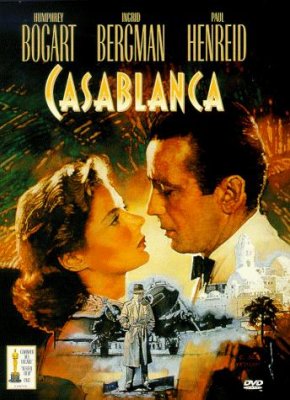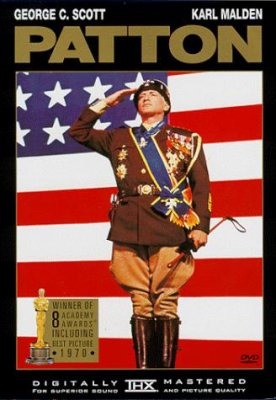
Unconditional love triumphs
over romance in ‘Casablanca’
Many people dream of an unconditional love. Some find it. Others don’t. “Casablanca,” one of the greatest American films, shows how some people have it both ways.
At the root of so many great romance tales is misunderstanding, and that is the crux of this plot. Rick has been betrayed by Ilsa, only to become the protector of her and her husband, not realizing she likely saved his life.
The misunderstanding can be tragic, as in “Romeo and Juliet.” In “Casablanca” it is both heartbreaking and reassuring. Ilsa did not dump Rick. She is a far greater person than that. And that is why he must ultimately let her go.
Humphrey Bogart made “Casablanca” at a time he was churning out five or six pictures a year, part of the Hollywood factory that served highly popular formula to the masses who didn’t even have television yet. “Casablanca,” directed by Michael Curtiz and produced by Hal Wallis, features a lot of the same actors and crews as other well-known movies of the 1940s such as “The Maltese Falcon” and “Yankee Doodle Dandy.”
This one happens to have Ingrid Bergman.
The heroine, Ilsa Lund, is not introduced until 25 minutes into the movie, and she is worth the wait. Bergman was 27 years old in this picture. Many at the time would say this was the world’s most beautiful woman, and the movie doesn’t disagree. Who, actually, could compete with her ... Elizabeth Taylor, perhaps, in “A Place in the Sun” or “Giant,” or maybe Natalie Wood in “Splendor in the Grass,” or Julia Roberts in “Pretty Woman,” all contenders, but were any of them as vulnerable as they were strong? “She isn’t just any woman,” Rick Blaine says, in the film’s greatest understatement.
Ilsa’s scenes with Rick work because of the resistance. Initially they are very cool to each other, troubled by their presence together. Then there is a falling out when Ilsa visits a drunken Rick in the wee hours. These scenes push the suspense, make us wonder, what is their problem? Eventually, we’re taken back to their time in Paris, a location that always signals passion. This is a couple in the midst of romance, but something is not quite right, and it is emphasized in the dialogue. They ask each other what they were doing 10 years ago, and she mentions getting braces for her teeth; he says he was looking for a job. He has become jaded by the worst elements of the world and only wishes to coexist; she is new to this and wants to fight. The implication that he is too old for her sets up the ending for glorious heartbreak, not devastation — it’s OK for her to leave with Laszlo because Rick wasn’t the right guy anyway.
The romance is neatly suspended. Bergman never quite gives in, when we think she might, because she can't. There is noticeably far more passion between her and Bogart than between her and Paul Henreid’s Laszlo, with whom her relationship is almost a business arrangement. She loves Rick, but can’t fully let herself go, even in the flashbacks. This is tricky territory for Curtiz and Bergman. There is a risk that her marriage to Laszlo is not believable to the viewer, that she is merely supporting his resistance efforts. Does she make the sale? Given the movie’s enormous ongoing popularity, one has to say yes.
It is a legendary film, and yet it is not without crutches. A lengthy narration, and a map, is needed at the start to explain the importance of the city. At least one very crucial concept is not able to be shown but must be delivered through dialogue, when Capt. Renault explains why the authorities haven’t closed Rick’s place — they know exit visas are sold there, but Rick has never sold one, so “that is the reason we permit you to stay open.” Another? Many conversations are used to explain why the “letters of transit” represent a guarantee of safe travel.
The film’s depiction of the legal authority of Morocco at the time doesn’t pass the commonsense test but is artistically passable. We need the characters in a box, and we don’t care how they get there. So the turf is considered “unoccupied” France, overseen by Vichy, and thus Germans, while committing some of the most atrocious war crimes in history, somehow can only invite their most worrisome enemies to their offices but can’t arrest them.
What’s more, the film asserts that the Vichy would let anyone who has papers signed by De Gaulle leave, no matter who they are.
Not every loose end is neatly tied up. Much thought must’ve gone into whether Rick must explain to Laszlo at the airfield what he and Ilsa spoke about the night before. Rick tells an obvious lie ... does Laszlo fully understand? It seems as though he does, that there is silent acceptance among the parties that Ilsa will always love Rick, but she will always love Victor more, and this is the way it must end. A variation of this occurs near the end of “Indecent Proposal” between Robert Redford and Demi Moore, when Redford’s John Gage is compelled to tell a disgusting lie in order to do the right thing.
Fans love the stars, but they also love the movie for its nightclub. Rick’s Place enjoys the unique status also seen much later at Paul Rusesabagina’s hotel in “Hotel Rwanda,” a level playing field for good guys amid decidedly hostile terrain. But Rick’s is a place you want to be, even if you’re not a refugee. There are very likable, very good-looking people here, dressed to the nines. They drink, they sing, they dance, they gamble a little bit, they socialize. Even the Vichy guards, and to a small extent the German officers, get caught up in the revelry. The clandestine activity that occurs is all for a good cause, people trying to escape to freedom. The club, unlike other settings, is fully lit, the warmest place in the desert.
For all kinds of legalities noted above, this is somehow a safe haven for the good guys, even though the bad guys run the town and can interfere to various degrees. Rick purports to be more like Grafton, the permanently neutral storekeeper in “Shane,” but we don’t really believe it from the beginning, the way other characters talk about him. He is first shown, nine minutes into the film, signing a check, then mulling over a move on a chessboard. But who is he playing? This is a loner, who evidently holds powerful purse strings. A wealthy German insists on entering the casino, and Rick bars him, tells him he’s lucky they’ll even serve him at the bar. The message is clear, that this is an independent businessman but not too independent; something about the Third Reich encroachment on his territory offends his values. “I stick my neck out for nobody,” he will say, but he says it twice, which is a strong signal of irony ahead. His realization of his true nature is the story arc.
“Casablanca” features some of the most well-dressed refugees on film. It’s quite a departure from the citizens of “The Killing Fields” or the Palestine-bound folks in “Exodus.” Here, everyone wears crisp tailored suits. Women dress as though they are prepped for a runway, and not the airport variety. Bergman at one point walks the streets in an outlandishly lovely striped outfit with wide hat. The streets are remarkably clean despite all of the bustling, clandestine activity. This is elegant, high-class social upheaval. There are later parallels to this in films such as “The Towering Inferno” and “Titanic.” It not only is impressive to look at, it sends an important message — that elites sacrifice too. They have a heart.
Bogart and Bergman starred in dozens of films apiece, many of them famous, yet this is undeniably their most memorable. The lines are regularly quoted to this day, “Here’s lookin’ at you, kid,” “I’m shocked — shocked — to find there’s gambling going on here” and “Play it again” (often wrongly described as “Play it again, Sam”).
Like many films of its time, this one has patriotism and sacrifice on the mind. The characters are not warriors, but their courage and values set the standard for those who are. Tough critics may see too nice of a world here, where even Nazis and Nazi sympathizers have a sense of humor and are convertible. “Casablanca” is not light, gentle fare, but a story of ultimate sacrifice, people unafraid of unconditional love who are willing to give their own lives to save others.
4 stars
“Casablanca” (1942)
Starring Humphrey Bogart as Rick Blaine ♦ Ingrid Bergman as Ilsa Lund ♦ Paul Henreid as Victor Laszlo ♦ Claude Rains as Captain Renault ♦ Conrad Veidt as Major Strasser ♦ Sydney Greenstreet as Signor Ferrari ♦ Peter Lorre as Ugarte ♦ S.Z. Sakall as Carl ♦ Madeleine LeBeau as Yvonne ♦ Dooley Wilson as Sam ♦ Joy Page as Annina Brandel ♦ John Qualen as Berger ♦ Leonid Kinskey as Sascha ♦ Curt Bois as Pickpocket
Directed by: Michael Curtiz
Written by: Murray Burnett
Written by: Joan Alison
Written by: Julius J. Epstein
Written by: Philip G. Epstein
Written by: Howard Koch
Executive producer: Jack L. Warner
Producer: Hal B. Wallis
Original music: Max Steiner
Cinematography: Arthur Edeson
Editing: Owen Marks
Art direction: Carl Jules Weyl
Set decoration: George James Hopkins
Costume design: Orry-Kelly
Makeup: Perc Westmore
Stunts: Harvey Parry





